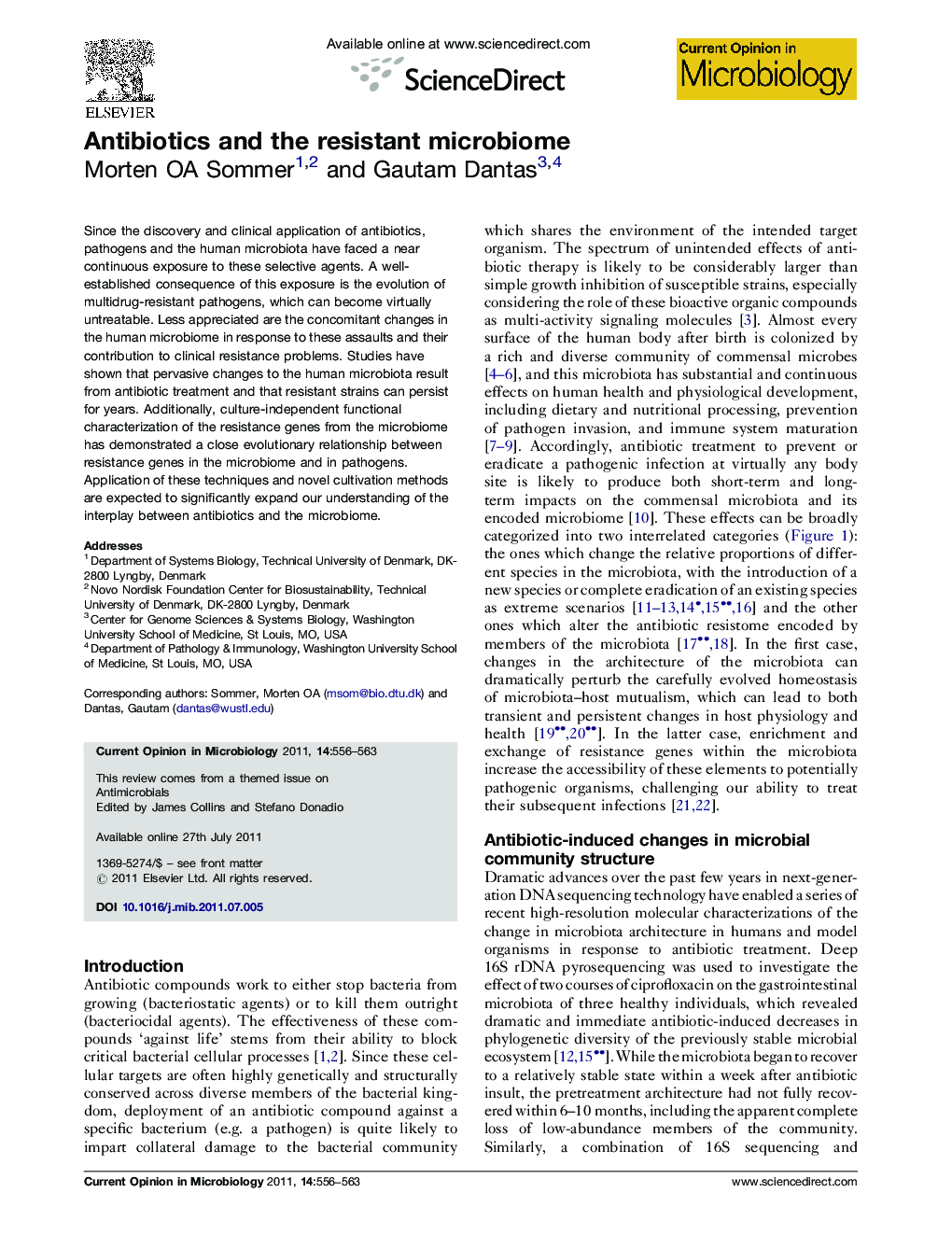| Article ID | Journal | Published Year | Pages | File Type |
|---|---|---|---|---|
| 3399210 | Current Opinion in Microbiology | 2011 | 8 Pages |
Since the discovery and clinical application of antibiotics, pathogens and the human microbiota have faced a near continuous exposure to these selective agents. A well-established consequence of this exposure is the evolution of multidrug-resistant pathogens, which can become virtually untreatable. Less appreciated are the concomitant changes in the human microbiome in response to these assaults and their contribution to clinical resistance problems. Studies have shown that pervasive changes to the human microbiota result from antibiotic treatment and that resistant strains can persist for years. Additionally, culture-independent functional characterization of the resistance genes from the microbiome has demonstrated a close evolutionary relationship between resistance genes in the microbiome and in pathogens. Application of these techniques and novel cultivation methods are expected to significantly expand our understanding of the interplay between antibiotics and the microbiome.
► Evolution of antibiotic resistance in pathogens has become a global public health threat. ► Microbiome wide characterization of resistance genes supports recent genetic exchange between the resistant microbiota and pathogens. ► Treatment with antibiotics leads to pervasive changes in the composition of the human microbiota and its encoded resistome. ► In vivo studies have demonstrated transfer of antibiotic resistance genes within the microbiota even in the absence of exposure. ► Enrichment of resistance genes in the microbiota is likely to exacerbate problems with pathogenic resistance.
